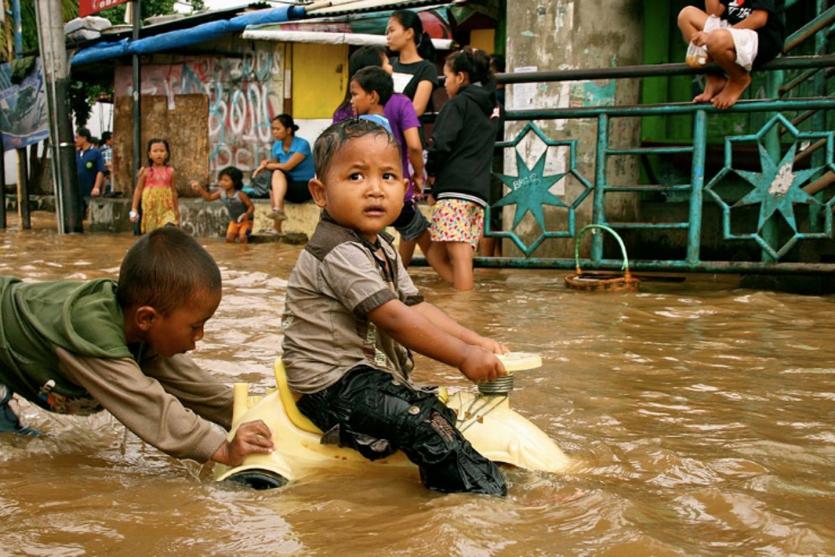Children play in flood waters in South Jakarta, Indonesia. A new study found that climate vulnerable countries pay more for climate risks. Photo: Wikimedia Commons
The World Daily | News Desk AUGUST 20th 2021
One billion children worldwide are at "extremely high risk" from the effects of the climate crisis, according to a UNICEF report published this month. As UN Executive Director Henrietta Fore commented, it is "unimaginably tragic".
As stated in the report, almost every 2.2 billion children in the world are exposed to at least one of the effects of a climate catastrophe, including heat waves, floods, tropical cyclones, droughts, air pollution, and disease. One billion lives in 33 countries that are affected by three or four of the effects simultaneously. This is India, Nigeria, the Philippines, and much of Sub-Saharan Africa. They are described as "extremely high risk" countries.
"For the first time, this report gives a complete picture of where and how children are vulnerable to climate change, a picture that is unimaginably tragic," said Henrietta Fore, Executive Director of UNICEF. "Climate change will actually affect the lives of every child," she added.
As she explained, "children are extremely vulnerable to climate hazards."
“Compared to adults, they need more food and water per unit body weight and are less able to survive extreme weather events,” she noted.






